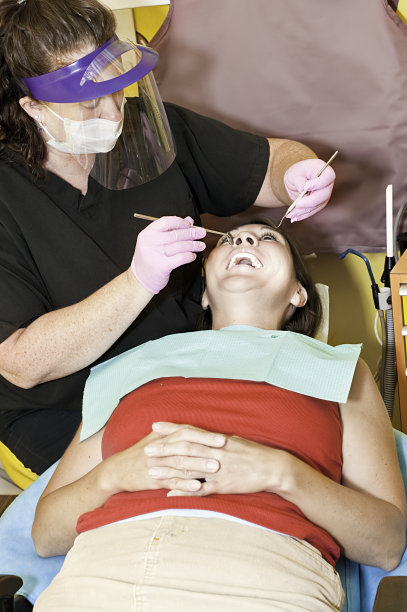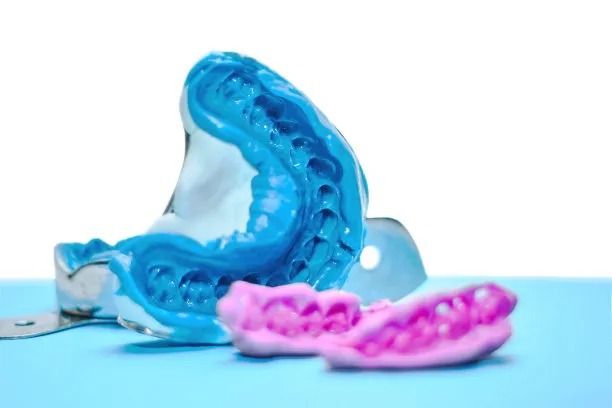Summary: Extracting a tooth is a significant dental procedure that requires proper techniques and care to ensure optimal oral health. This article discusses four key aspects of tooth extraction, highlighting the importance of professional training, patient preparation, aftercare, and the role of regular dental check-ups. Each of these elements plays a crucial role in minimizing complications, enhancing recovery, and maintaining overall dental health. Understanding these aspects can empower patients to make informed decisions and promote a healthier smile.
1. Importance of Professional Dental Training

Tooth extraction should always be performed by a trained dental professional. The expertise of a dentist or oral surgeon is paramount to ensure that the procedure is conducted safely and effectively. Dental professionals have years of education and practice that enable them to manage various complexities that may arise during the extraction process.
Improper techniques can lead to significant complications, such as fractured teeth, damage to surrounding tissues, or even infections. Understanding the anatomy of the mouth and the specifics of each tooth type are vital for successful extractions. Only qualified dentists possess the necessary skill set to navigate these challenges and provide the best outcomes for their patients.
Additionally, a professional can use advanced tools and techniques that are not available to the average individual. These include anesthesia options to manage pain effectively and specialized implements that minimize trauma to surrounding gums and bone structures.
2. Preparing the Patient for Extraction
Proper preparation of the patient is essential for a smooth tooth extraction process. This involves a thorough dental examination, which helps the dentist evaluate the condition of the tooth and surrounding tissues. Understanding the patients medical history, including any medications or allergies, is crucial in tailoring the treatment plan to minimize risks.
Patients should also be informed about what they can expect during the extraction, including any sensations they might feel and the type of anesthesia that will be used. Clear communication can alleviate anxiety, making it easier for patients to cooperate during the procedure. In some cases, patients may be advised to stop taking certain medications that could interfere with bleeding or healing.
Before undergoing the extraction, patients should be given clear instructions on how to prepare, including fasting if necessary or arranging for transportation home afterward. Such measures ensure the patients safety and comfort, ultimately leading to better recovery outcomes.
3. Importance of Aftercare Following Extraction
Aftercare is a critical component of the tooth extraction process that significantly affects recovery and oral health. Following the procedure, patients receive specific instructions on how to care for the extraction site. This includes guidance on managing pain, swelling, and bleeding, which are common post-extraction issues.
Patients are often advised to use ice packs to reduce swelling and to avoid strenuous activities in the days following the extraction. Maintaining a soft diet and staying hydrated while avoiding suction or rinsing can help protect the healing tissues. Proper aftercare minimizes the risk of complications such as dry socket, which can be very painful and prolong recovery time.
In addition, monitoring the extraction site for any signs of infection, such as excessive pain or discharge, is crucial. Patients should be encouraged to follow up with their dentist if they experience any unusual symptoms. This proactive approach can safeguard against potential complications and ensure a faster return to optimal oral health.
4. Role of Regular Dental Check-Ups
Regular dental check-ups play an essential role in overall oral health and can significantly impact the necessity of tooth extractions. Frequent visits enable dental professionals to monitor the health of teeth and gums, addressing any potential issues before they escalate into severe problems that may require extraction.
Professional cleanings and examinations can catch decay, gum disease, or structural issues early, allowing for less invasive treatments. By prioritizing preventative care, patients can maintain their teeth health and keep extractions to a minimum. This proactive behavior not only supports immediate stability but also encourages long-term dental wellness.
Furthermore, these check-ups provide opportunities for patients to discuss any dental concerns openly, empowering them to take charge of their oral health. A strong relationship with a dental professional fosters a supportive environment where patients are more likely to engage in better oral hygiene practices and awareness.
Summary:
In conclusion, the extraction of a tooth is not merely a routine procedure; its a critical process that relies on proper techniques and post-operative care for optimal oral health. The training of dental professionals, preparation before extraction, diligent aftercare, and regular dental check-ups are all instrumental in ensuring successful outcomes for patients. By recognizing the significance of these aspects, individuals can approach tooth extractions with confidence and maintain a healthier smile.
This article is compiled by Vickong Dental and the content is for reference only.
Vickong Dental
Vickong Dental is a large medical group established in Hong Kong in 2008 by professors from well-known medical universities in Guangdong and Hong Kong, as well as medical doctors from key national '985' universities (including Master's supervisors and senior professors). The chain of branches brings together expert dentists with PhDs and Master's degrees from Hong Kong and Mainland China, committed to providing high-quality dental treatment.
"Vickong Dental Practices the University Motto of 'Healing and Serving Society,' with a Stable Operation for Sixteen Years. It Has Been honored with Hong Kong Enterprise Leaders's Choice,' and is a Global Trusted Implant Center for the Nobel Implant System. Recommended by Hong Kong Metro Broadcast and Guangdong Television, it Serves Customers from Over Thirty Countries and Regions, Gaining the Trust and Favor of Citizens from the Guangdong-Hong Kong-Macau Greater Bay Area and Surrounding Cities.

Thousands of customers' unanimous praise
The most recognized and highly recommended dental service by customers in the Guangdong-Hong Kong-Macau Greater Bay Area
We Ensure You Receive Detailed Care and Attention Here
Hong Kong standards, Shenzhen prices, Your Trusted English-speaking dentists

Vickong Dental Medical-Grade Instrument Disinfection Process
Vickong Dental Medical-Grade Instrument Disinfection Process

Vickong Dental Chain: A Warm and Comfortable Environment for Treatment






Appointment Hours

Q&A
Why choose Vickong Dental?
Vickong Dental practices the university motto 「Medicine to Benefit Society」, with each branch bringing together highly qualified dentists with doctoral and master’s degrees from Hong Kong and the Mainland, and has maintained seventeen years of steady operation。Recipient of 「2024 Hong Kong Enterprise Leaders Brand」, 「2025 Hong Kong Enterprise Leaders Brand」, a Nobel Biocare Global Trusted Implant Center, and a brand recommended by Metro Radio Hong Kong and Guangdong TV。
To date, we have served customers from more than thirty countries and regions,earning exceptionally high word-of-mouth recognition and trusted recommendations from residents across the Guangdong-Hong Kong-Macao Greater Bay Area and surrounding cities
We have eight major branches in Zhuhai、Shenzhen,and a consultation and service assurance center in Hong Kong,so you can book a free consultation at any time for any questions,which is very reassuring.
If I do not accept the quotation after the CT scan, will I be charged??
No! As long as the actual treatment has not started, you will not be charged any fees.
Will there be any additional charges during the treatment process?
No, there won’t be any additional charges. Before treatment begins, we will clearly explain the treatment plan and its corresponding fees. Only after the patient agrees and signs the consent form will we proceed with the dental service.
Can I pay in Hong Kong dollars?
Yes. Vickong Dental accepts payment in Hong Kong dollars. The amount will be converted based on the exchange rate of the day, and the applicable rate will be clearly communicated to you in advance.
Can I reschedule my appointment at any time?
Yes. Please contact us via **WeChat** or **WhatsApp** as early as possible, providing your original appointment time and details, along with your preferred new date and time slot for rescheduling.













